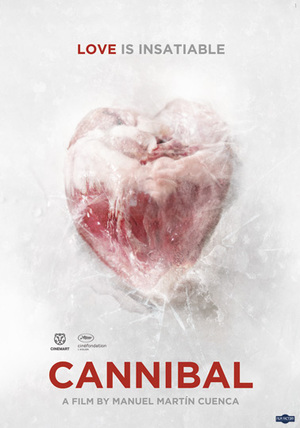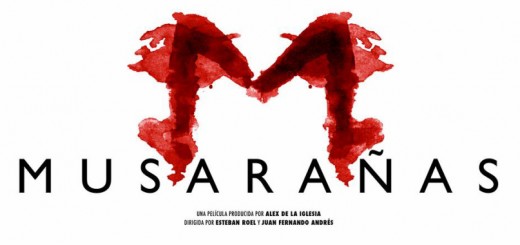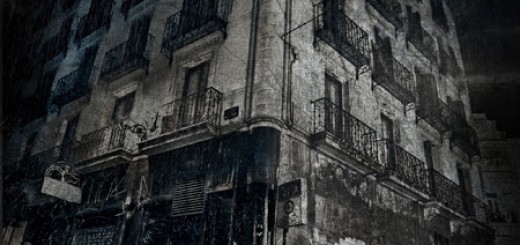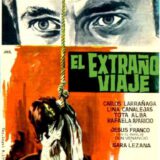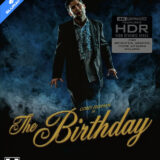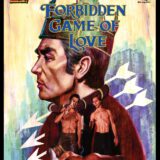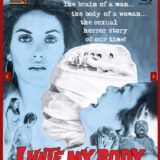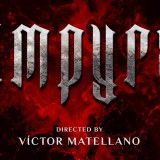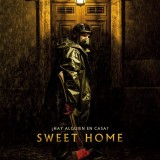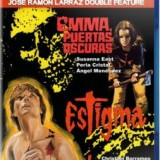Martin Cuenca’s Thriller-Love Story CANNIBAL released in USA
Carlos is the most prestigious tailor in Granada, but he’s also a murderer in the shadows. He feels no remorse, no guilt, until Nina appears in his life. She will make him realize the true nature of his acts and, for the first time, love awakens. Carlos is evil incarnate, unaware of itself. Nina is pure innocence. And Cannibal is a demon’s love story.
It was released at American theaters on July 25
DIRECTOR’S STATEMENT
Whenever I begin a new project, I ask myself why I want to work on it. If the answer that I find is too rational and convenient, something that immediately responds to a desire where the fantasy is success, I know that I don’t actually want to make that movie. And yet, when I can’t quite find the right words, when I’m bested by the need to speak about something that I don’t know for sure what it is, I discover the value of that story. Because there is something irrational in film that drives me. I make movies because I like to learn, because I like to feel like a student who doesn’t know anything and who keeps his sense of wonder intact.
This film wants to tell me something beyond what I could ever know. And that pushes me in a powerful way. Alejandro, my co-screenwriter, told me about this novel, “Caribal” by Humberto Arenal. And we felt that we should write this screenplay together, trying to figure out the deep meaning hidden there in order to then turn it into a secret that the spectator can guess at. For us, the essence of film is mystery and the conviction that the viewer can actively participate in it. We construct a story and then we hide it so that it comes out from inside its soul, through the grating.
The fact that cannibalism is a huge taboo makes me think that there is something in its nature that is so close to us that we have decided to ban it. I believe that a ban always hides something and that we should ask ourselves about it, even if it is to reach the conclusion that bans should exist. Jean Genet wrote, “The kiss is the form taken by a primitive urge to bite, even to devour…” I wonder what he meant, what the act of devouring has to do with an act like a kiss. I wonder what destruction has to do with tenderness. And I realize that this film is about the dialectic between evil and love.
This story takes place on the margins and at an emotional breaking point. I think it is the best way to talk about our times and to question our society. Westerns and film noir teach us that the best and most accurate portrayal of our civilization is to be found on geographic and moral frontiers where we find those characters who are pushed away and excluded, those who shape the true sense of an era and its ethical dilemma.
Our Europe is complacent. It has trouble admitting that evil inhabits it, that it is not just some waste caused by external agents, but an essential part of itself. We fight evil as if it were a vicious, but distant enemy. As if it had nothing to do with ourselves. Unfortunately, this is a simplistic view; it is too naïve.
Our story is set in a contemporary time, in the old provincial city of Granada where tradition dominates daily life. In the midst of all this, Carlos is a cannibal who lives out his condition without remorse, without guilt, conscious of the fact that the only thing that drives his life is survival. He neither asks nor questions. He only acts, relentless… Until the time comes when he starts to question himself because a chink is opened in his soul. A crack that love starts to seep through. And through love, doubt does as well.
In the face of evil, love, is what the story seems to be saying… and its capacity to redeem us.
But to what extent can love change the past? To what extent can love redeem it? The fantasy we all encourage, tells us it’s possible, that love conquers all. Our society provides stories over and over again where love triumphs. But what would happen if we were overestimating its strength, its capacity to recover and to overcome all difficulties? What would happen if we were to realize that the power of this melodramatic love is less than we’d imagined…? And what would be left to us then, if love manifested its impotence? The only possible source for redeeming evil would be something that goes beyond love: forgiveness.
This is a story where these three forces must coexist, inhabiting the same space. The first is evil, unaware of itself, embodied in a character who believes life is only survival. The second is love that— arising like an unforeseen force through the story of Carlos and Nina—affects the present and thus changes it, but is incapable of transforming the past. And finally, forgiveness, the only thing capable of travelling back in time and, from there, changing the future.
But how could a chink be opened in the armor of evil, in the conscience of Carlos, the cannibal? This was the question we asked ourselves over several drafts of the script until we found an answer: duality. The dual character of Alexandra/Nina (the twin sisters), is what makes the appearance of doubt possible, what makes it believable, and what makes possible for love to sprout as a precursor to forgiveness. Because Carlos confronts a ghost, someone he has already killed, and as such he faces his own mirror. A mirror that reflects who he really is back to him. The fact that Nina shows up looking for her twin sister fractures the protagonist’s conscience, elevating the story and transcending it beyond its realistic content. Everything becomes a metaphor. A dream. A reckoning with a ghost… Suddenly, the realistic tale leads us to the supernatural. And the crime becomes a love story.
Ultimately, ‘Cannibal’ is film noir but, above all, it is a romance.

